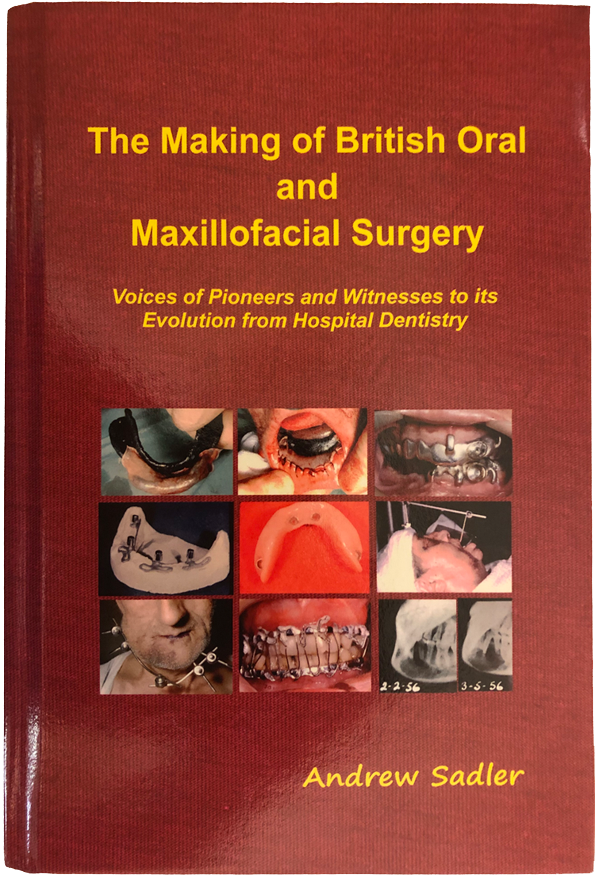History of BAOMS
Each major Speciality of Medicine and Dentistry has its own National Professional Association, derived from the need to exchange clinical and scientific information amongst clinicians working in the same field, primarily to advance and harmonise standards of patient care.
Speciality Associations have traditionally been independent, apolitical, non-statutory bodies, membership being voluntary, which have complemented the statutory roles of the Royal Colleges, the General Medical & Dental Councils and the British Medical and Dental Associations. Overseas, Speciality Associations often negotiate directly with Government.
The British Association of Oral Surgeons was formed in February 1962 by resolution of a Steering Committee under the Chairmanship of Norman Rowe. The inaugural meeting was held at the Royal College of Surgeons of England in April 1962. The first President, Terrence Ward, and the first Council were elected by the 75 founder members. The Honorary Secretary was Norman Rowe and the Honorary Editor, John Hovell, all three at the leading edge of the Speciality internationally. Later that year the Presidential Badge of Office was presented by the sister American Association AAOMS (American Association of Oral and Maxillofacial Surgeons).
Oral & Maxillofacial Surgery originated in this country as the surgical speciality of dentistry, developing from the need for specialist services to treat jaw injuries sustained by servicemen during the two world wars. It soon became clear that the prevalence of civilian facial injuries in peace time was at least as great, largely due to the increasing use of motor cars and motor cycles. The speciality of Oral & Maxillofacial Surgery evolved to meet the clear demand for treatment of an increasingly large range of pathological conditions of the face, jaws and teeth. The complexity of the speciality was reflected by a change of title from The British Association of Oral Surgeons to The British Association of Oral & Maxillofacial Surgeons in 1985/6.
As a hospital-based, surgical speciality it became logical that both dental and medical qualifications were required. Due to the influence of this association, dual qualification became mandatory in the late 1980's. Likewise, the requirement of basic general surgical training, assessed by a surgical Fellowship examination, was facilitated by this Association in conjunction with the Royal Surgical Colleges. The speciality, whilst always retaining its dental base, was formally established as one of the nine surgical specialities in 1994 and has membership of the Senate of Surgery and its Committees.
The Association has flourished at an astounding pace, both in the clinical repertoire of its membership and the influence it exerts within the medical and dental professions at large. Overall membership is now approximately 1500 which includes a core membership of approximately 360 Fellows, and has responded to changes in specialisation brought about by the General Medical and Dental Councils in response to European Directives, and embraces Oral & Maxillofacial Surgery, Oral Surgery and Surgical Dentistry.
It is a requirement, in accordance with Article 8 (3)(b) of the European Specialist Medical Qualification Order 1995 that a Doctor must be both a registered medical practitioner and a registered dentist in order to be eligible for inclusion in the Specialist Register for the Speciality of Oral & Maxillofacial Surgery (OMFS). This Register is held by the General Medical Council (GMC). The specialist list in Oral Surgery (OS) is held by the General Dental Council (GDC).
Trainees of all levels and specialists on the OS and OMFS specialists list are welcome to join BAOMS, whether they are from the UK or from anywhere else in the world.
The Association, for many years a registered charity, became a company limited by guarantee in 1997.
The Making of British Oral and Maxillofacial Surgery: Voices of Pioneers and Witnesses to its Evolution from Hospital Dentistry by Andrew Sadler
ISBN: 978-1- 9993612-3-5
Available on Amazon

After the start of the National Health Service, ambitious dental surgeons expanded their role from dental extractions, minor mouth surgery and the treatment of jaw fractures with wires and dental appliances to comprehensive surgery of the mouth, face and jaws often in the face of sustained opposition from the established surgical specialties.
The result was the specialty of Oral and Maxillofacial Surgery which was recognised by the wider surgical community and the regulator, the General Medical Council, in the 1990s.
This story of hard work, enterprise and achievement is told in the words of many of those who drove the changes and inspired others to improve techniques and outcomes for those suffering from injury, cancer, deformity and oral and dental disease.